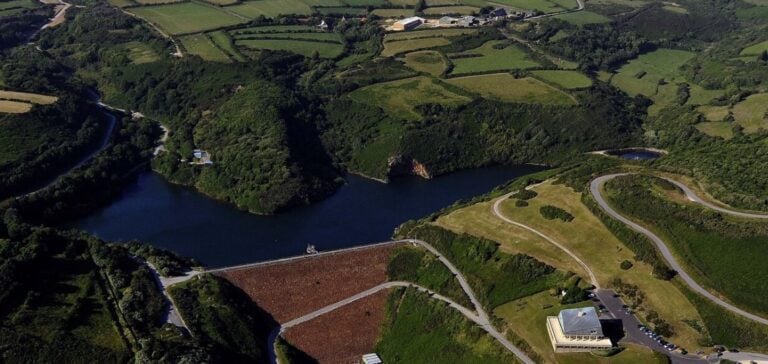The French nuclear safety authority (ASN) recently gave Orano formal notice to restore the Moulinets dam at La Hague, a strategic site for spent fuel recycling. This decision comes after inspections revealed significant damage to the pipes essential for supplying water to the cooling installations. According to ASN, Orano’s expert assessments revealed a significant loss of thickness in the pipes, due to wear and corrosion. This situation compromises the ability of the pipes to withstand an earthquake, an essential condition given the dam’s seaside location and critical function.
A major safety issue
Pierre Bois, Deputy Director General of ASN, explained that the Moulinets dam, which holds back some 416,000 m³ of water, must be operational in all circumstances, including extreme earthquakes. Stored water is essential for cooling spent fuel, which continues to generate heat due to its radioactivity. During an inspection carried out on February 8, 2024, ASN officials observed a leak in a gallery pipe. This discovery has called into question the effectiveness of the compensatory measures implemented by Orano to date.
Action plan and deadlines
In response, Orano submitted an action plan in line with the schedule required by ASN. The company claims that the dam is under “regular and continuous surveillance” and that it is designed to withstand major earthquakes, thus posing no risk to the population. However, the formal notice requires Orano to present a detailed progress report on the necessary work within six months of January 1, 2025. This work must be completed by December 31, 2025 at the latest, to ensure compliance. Every year, around 1,100 tonnes of spent fuel from nuclear power plants – mainly in France, but also in Europe and Japan – are processed at the La Hague plant. These highly radioactive fuels require constant cooling, either in pools or via cooling circuits, to avoid any risk of overheating.
Impact on the nuclear sector
The situation at La Hague highlights the ongoing challenges of critical infrastructure management in the nuclear sector. Plant safety is essential, not only to protect the environment and people, but also to maintain confidence in the nuclear industry. ASN’s requirements remind industry players of the need for rigor and vigilance in infrastructure maintenance and monitoring. This case also illustrates the importance of crisis management and response plans, particularly in a context of seismic risk. The outcome of this formal notice could serve as a benchmark for other similar facilities, reinforcing safety protocols and maintenance standards within the nuclear industry.
The French nuclear safety authority (Autorité de sûreté nucléaire) ensures compliance with the strictest safety standards, requiring Orano to take immediate corrective action. This situation highlights the technical and safety challenges facing the nuclear industry, underlining the importance of continuous monitoring and rigorous maintenance of critical infrastructures.





















